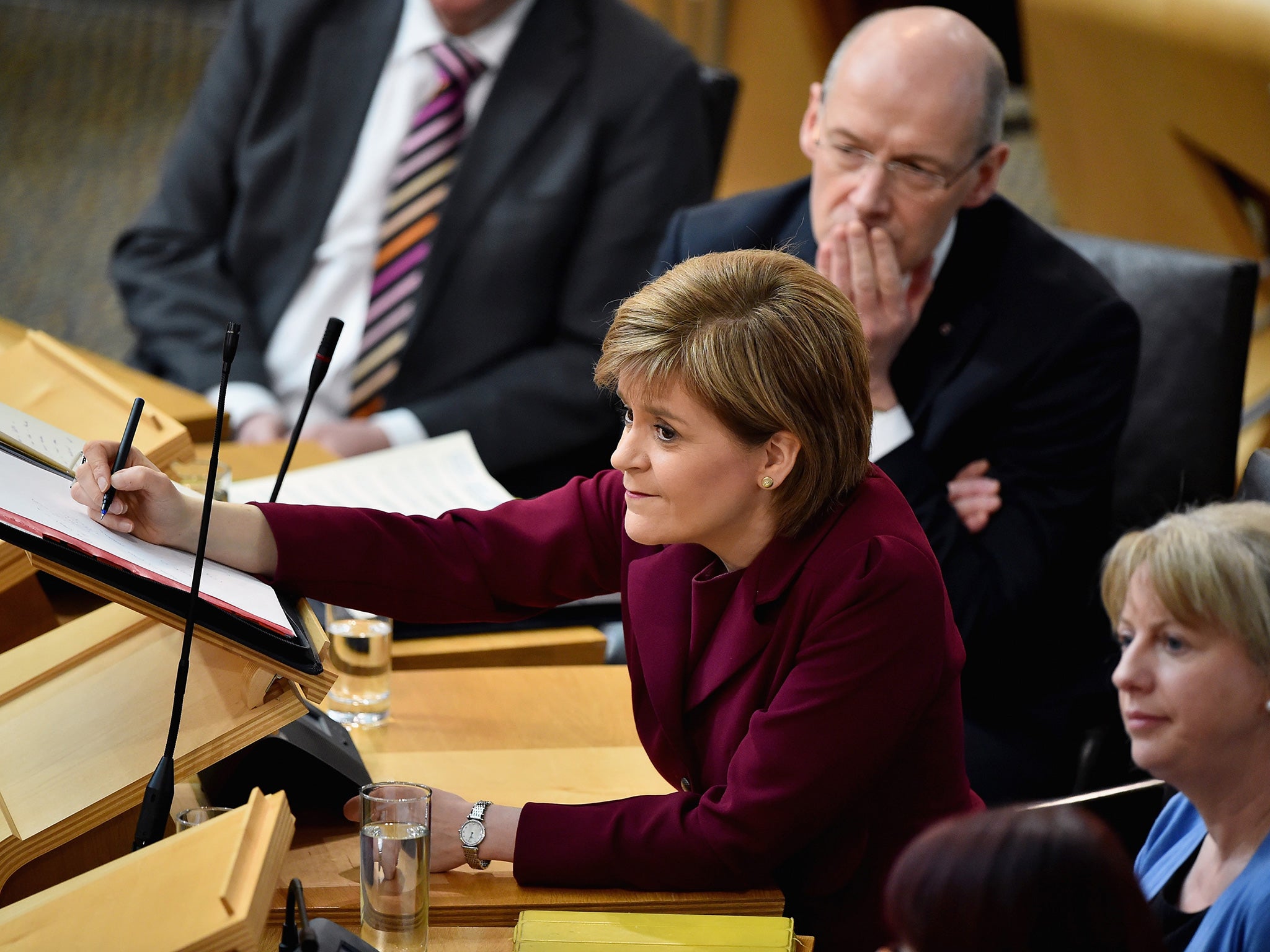Scottish National Party is a victim of its own success
As it has got better at winning elections, competition to become an SNP MP or an MSP has become much fiercer

Your support helps us to tell the story
From reproductive rights to climate change to Big Tech, The Independent is on the ground when the story is developing. Whether it's investigating the financials of Elon Musk's pro-Trump PAC or producing our latest documentary, 'The A Word', which shines a light on the American women fighting for reproductive rights, we know how important it is to parse out the facts from the messaging.
At such a critical moment in US history, we need reporters on the ground. Your donation allows us to keep sending journalists to speak to both sides of the story.
The Independent is trusted by Americans across the entire political spectrum. And unlike many other quality news outlets, we choose not to lock Americans out of our reporting and analysis with paywalls. We believe quality journalism should be available to everyone, paid for by those who can afford it.
Your support makes all the difference.The discipline of modern Scottish nationalism has been as much a hallmark as eccentricity was of its less electorally successful incarnation. Few political parties find themselves speaking with the same voice about such divisive subjects as air strikes on Syria. Yet last night those 54 SNP votes in the Commons ought to have been 56. As a number of wags have pointed out, two Independent Nationalist MPs now constitute the second-largest group of Scottish representatives at Westminster.
A damage-limitation exercise had it that Natalie McGarry (Glasgow East) and Michelle Thomson (Edinburgh West) voluntarily “withdrew” from the SNP whip – the parliamentary equivalent of jumping before they were pushed. But here’s the interesting thing: while Labour’s travails have undeniably dented its poll ratings, the SNP’s recent problems haven’t made the slightest bit of difference.
Neither MP has been charged with a criminal offence, but both, indirectly or directly, are currently under police investigation. Whatever the outcome (and there has been briefing to the effect that even if cleared, the SNP would rather neither rejoined the party), it doesn’t look good – not least because it erodes the party’s often sanctimonious claim that it’s “not like” other parties. In his book We Are The 56, Adrian Searle notes the high number of what he calls “ordinary folk” selected to contest seats back in May. That much was true, and it also happened very quickly, for choosing candidates before the independence referendum might have appeared to concede defeat.
There has also been increasing criticism of the SNP’s vetting process with one commentator claiming that some candidates had been cleared “on the basis of a 30-minute telephone interview”. And despite the party’s reputation for discipline, off-the-record briefing is becoming much more common, albeit driven by personalities rather than ideology. To some degree, the party has become a victim of its own success: as it has got better at winning elections, competition to become an SNP MP in London, or an MSP or minister at Holyrood, has become much fiercer.
This dynamic is heightened by the forthcoming election to the Scottish Parliament, a contest in which the SNP might take all (or the vast majority of) 73 constituency seats. Indeed, several of those in the campaigning group Women for Independence (WFI), who referred accounting irregularities linked with Natalie McGarry (pictured) to Police Scotland, are themselves candidates next May. Ironically, it was WFI which catapulted the Glasgow East MP into the limelight during the independence referendum – she helped to create the group “over a glass of wine”.
To paraphrase Oscar Wilde, to lose one MP in the space of a few months may be regarded as misfortune, but to lose two looks like carelessness. The SNP is a party, however, that generally learns from its mistakes, and this is one it cannot afford to repeat too often.
Join our commenting forum
Join thought-provoking conversations, follow other Independent readers and see their replies
Comments